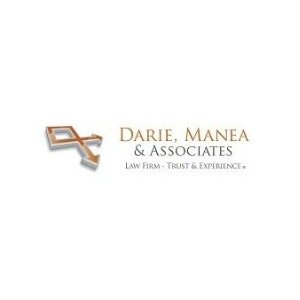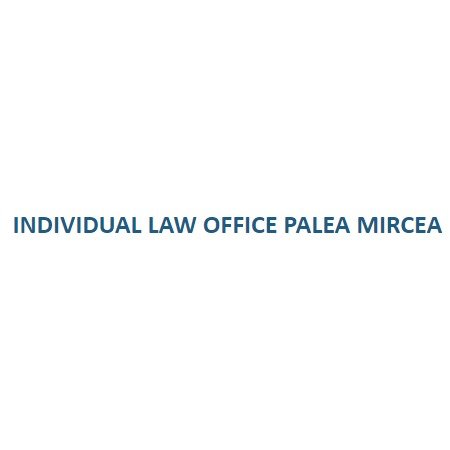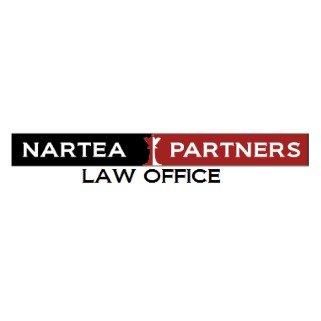Best Project Finance Lawyers in Romania
Share your needs with us, get contacted by law firms.
Free. Takes 2 min.
Or refine your search by selecting a city:
List of the best lawyers in Romania
About Project Finance Law in Romania
Project finance is a specialized area of law that deals with funding large-scale infrastructure and industrial projects, where repayment comes from the cash flows generated by the project itself. In Romania, project finance is commonly used for investments in energy, transport, telecommunications, real estate development, and public-private partnerships. The unique feature of project finance is the reliance on a project's assets and revenue streams as collateral, rather than the balance sheets of project sponsors.
Why You May Need a Lawyer
The field of project finance in Romania involves complex legal and financial structures, multiple parties, regulatory compliance, and sophisticated documentation. Here are common situations where legal guidance is essential:
- Structuring and negotiating project finance agreements
- Understanding and navigating regulatory approvals and permits
- Drafting or reviewing contracts with lenders, contractors, and suppliers
- Managing risks related to construction, operation, and revenue streams
- Engaging in public-private partnerships (PPP)
- Dealing with cross-border financing or foreign investors
- Handling disputes, defaults, or restructuring within projects
- Ensuring legal compliance with local and EU regulations
Local Laws Overview
Project finance in Romania operates within a specific legal and regulatory framework. Key aspects include:
- Regulatory Agencies: Projects often require approvals from national and local authorities, especially in sectors like energy, environment, and transport.
- PPP Legislation: Public-private partnerships are governed by Law No. 233/2016 on PPP, which sets out procedures for procurement and collaboration between public and private entities.
- Securities and Guarantees: Romanian Civil Code provisions on mortgages, pledges, and other guarantees are central to project finance structures.
- Licenses and Permits: Projects may require building permits, environmental impact assessments, and operational licenses under Romanian law.
- Foreign Direct Investment: Recent FDI screening rules must be observed for non-EU investors in sensitive sectors.
- Taxation: Specific tax incentives and VAT rules may apply depending on the nature and location of the project.
- EU Law Compliance: European funds and regulations play a significant role in Romanian infrastructure projects.
Frequently Asked Questions
What is project finance and how is it different from traditional lending?
Project finance involves funding a project based on its future cash flows, with repayment and security tied to the project assets, rather than relying solely on the borrowers' overall creditworthiness. Traditional lending usually depends on the borrower's full balance sheet as collateral.
Which sectors in Romania commonly use project finance?
Sectors include energy (renewables, oil and gas), transport infrastructure (roads, railways, airports), telecommunications, real estate, and sometimes public utilities.
What permits are typically needed for a project-financed development in Romania?
Depending on the sector, you may need construction permits, environmental approvals, urban planning certificates, operational licenses, and sometimes authorizations from energy or transport regulators.
What are common forms of security used in Romanian project finance?
Security may include mortgages over land or assets, pledges over shares or receivables, and assignments of project contracts or insurances in favor of lenders.
Are international investors allowed to participate in project finance structures in Romania?
Yes, both EU and non-EU investors can participate, though non-EU investors in certain sectors may need to undergo FDI screening by Romanian authorities.
How are public-private partnerships regulated in Romania?
PPPs are regulated under Law No. 233/2016, specifying the procedures for project initiation, bidding, contract structure, and dispute resolution between public and private parties.
Can project revenues be assigned directly to lenders?
Yes, project agreements commonly include direct agreements or assignments of revenues and receivables to the financing banks or lenders as security for the loans.
What happens if a project-financed operation fails or defaults?
In case of a default, lenders usually have recourse to the project's assets and revenue streams. A carefully drafted agreement defines enforcement processes, step-in rights, and methods for restructuring the project if necessary.
Are there any government incentives for project-financed investments?
Romania offers incentives such as state aid schemes for large investments, EU grants for infrastructure, and sector-specific incentives (especially in renewable energy projects).
Do I need a Romanian partner or sponsor for a project finance structure?
Not always, but collaboration with a local partner can be beneficial for navigating local regulations, obtaining permits, and engaging with public authorities.
Additional Resources
If you are seeking more information or support with project finance in Romania, the following entities may be helpful:
- Romanian Ministry of Finance - Provides information about state aid, public investment programs, and policy guidance.
- National Energy Regulatory Authority (ANRE) - For energy sector approvals and regulations.
- National Agency for Public Procurement (ANAP) - Regulates public-private partnership projects and tenders.
- Romanian Chamber of Commerce and Industry - Offers guidance for foreign investors and business development.
- European Bank for Reconstruction and Development (EBRD) - Active in project finance investments in Romania and provides advisory services.
Next Steps
If you are considering starting or investing in a project finance venture in Romania, or you are facing legal or regulatory questions, it is recommended to:
- Consult with an experienced Romanian project finance lawyer who can assess your project's specifics
- Gather all necessary documentation regarding your project, potential partners, and financial plans
- Identify which permits and regulatory approvals will apply to your project sector
- Discuss possible risks and mitigation measures, including available security and insurance structures
- Stay updated on local, EU, and international developments that might affect your project
Legal expertise is essential to ensure compliance, address risks, and maximize the chances of your project's success in Romania.
Lawzana helps you find the best lawyers and law firms in Romania through a curated and pre-screened list of qualified legal professionals. Our platform offers rankings and detailed profiles of attorneys and law firms, allowing you to compare based on practice areas, including Project Finance, experience, and client feedback.
Each profile includes a description of the firm's areas of practice, client reviews, team members and partners, year of establishment, spoken languages, office locations, contact information, social media presence, and any published articles or resources. Most firms on our platform speak English and are experienced in both local and international legal matters.
Get a quote from top-rated law firms in Romania — quickly, securely, and without unnecessary hassle.
Disclaimer:
The information provided on this page is for general informational purposes only and does not constitute legal advice. While we strive to ensure the accuracy and relevance of the content, legal information may change over time, and interpretations of the law can vary. You should always consult with a qualified legal professional for advice specific to your situation.
We disclaim all liability for actions taken or not taken based on the content of this page. If you believe any information is incorrect or outdated, please contact us, and we will review and update it where appropriate.
Browse project finance law firms by city in Romania
Refine your search by selecting a city.

















